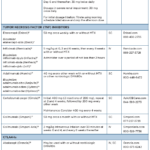On April 1, nearly 10,000 employees at the U.S. Department of Health & Human Services (HHS) received notice that they were being let go. Added to the reductions in force that have already transpired at the HHS, this marks a nearly 25% reduction in staffing at the HHS since the Trump Administration took office. This most recent round of downsizing affected the most people (3,500) at the Food & Drug Administration (FDA) and the fewest (300) at the Centers for Medicare & Medicaid Services (CMS). Also eliminated were the positions of 2,400 employees at the Centers for Disease Control & Prevention (CDC) and 1,200 at the National Institutes of Health (NIH).
The HHS will also merge functions involving human resources, information technology, procurement and policy; cut the number of regional offices in half to five; and consolidate the department’s 28 divisions into a new Administration for a Healthy America (AHA).
These changes will:
- Combine into the AHA the Office of the Assistant Secretary for Health (OASH), Health Resources and Services Administration (HRSA), Substance Abuse and Mental Health Services Administration (SAMHSA), Agency for Toxic Substances and Disease Registry (ATSDR) and National Institute for Occupational Safety and Health (NIOSH), a consolidation that likely omits the 340B drug discount program overseen by HRSA;
- Consolidate NIH procurement, human resources and communications operations across 27 institutes and centers, which may add to delays due to the recent 15% cap on indirect costs for all NIH grants and ongoing communications and transparency concerns between NIH and stakeholders corresponding with a slowdown in grantmaking and cancellation of awards;
- Cut 3,500 staff from the FDA, focusing on streamlining operations and centralizing administrative functions. The HHS has asserted this will not affect drug, medical device or food reviewers or inspectors, but it is unclear how these changes will impact “interchangeability” status for biosimilars;
- Refocus the CDC’s mission to “preparing for and responding to epidemics and outbreaks,” a move that includes dismantling Healthy Aging and restructuring multiple other CDC branches that manage essential research and public health programs critical to the well-being of millions of people living with arthritis and other chronic conditions;
- Move the Administration for Strategic Preparedness and Response (ASPR), which is responsible for national disaster and public health emergency response, under the purview of the CDC;
- Create a new position, the Assistant Secretary for Enforcement, to oversee the Departmental Appeals Board (DAB), Office of Medicare Hearings and Appeals (OMHA) and Office for Civil Rights (OCR) to “combat waste, fraud, and abuse in federal health programs;”
- Merge the Assistant Secretary for Planning and Evaluation (ASPE) with the Agency for Healthcare Research and Quality (AHRQ); and
- Merge several critical programs that support older adults and people with disabilities and are currently housed at the Administration for Community Living (ACL) with other HHS agencies, including the Administration for Children and Families (ACF), ASPE and CMS.
These steep workforce reductions and consolidations in functions at the HHS are coming on the heels of HHS endeavors to cap indirect costs for NIH grants at 15%, remove diversity, equity and inclusion from HHS programs and resources and bar public comments from certain HHS decisions.
The ACR is deeply concerned by these endeavors. We have joined forces with other specialty societies in speaking out against the cap on indirect research costs. We are currently monitoring how these recent program consolidations and reductions in force will impact regulatory issues of the most concern to ACR membership, such as Medicare and Medicaid coverage and reimbursement and FDA approval and regulation of prescription drugs.
Specifically, the ACR has joined forces with the Arthritis Foundation to petition the new leadership to continue supporting arthritis research. We have also joined the Alliance for a Stronger FDA to express concerns to Congress and the Trump Administration that sudden sweeping changes may result in unintended consequences and to encourage Congress and the HHS to collaboratively provide a more detailed plan and engage in a stakeholder dialogue prior to moving forward.
The ACR is steadfastly committed to ensuring our nation’s public health agencies remain global leaders in promoting the health and well-being of everyone. We will continue to advocate for proven programs that have bolstered research on arthritis and other rheumatologic diseases and enhanced the ability of rheumatologists to provide high-quality care for their patients. ACR/ARP members should email the ACR’s advocacy team at [email protected] with any questions and comments.



